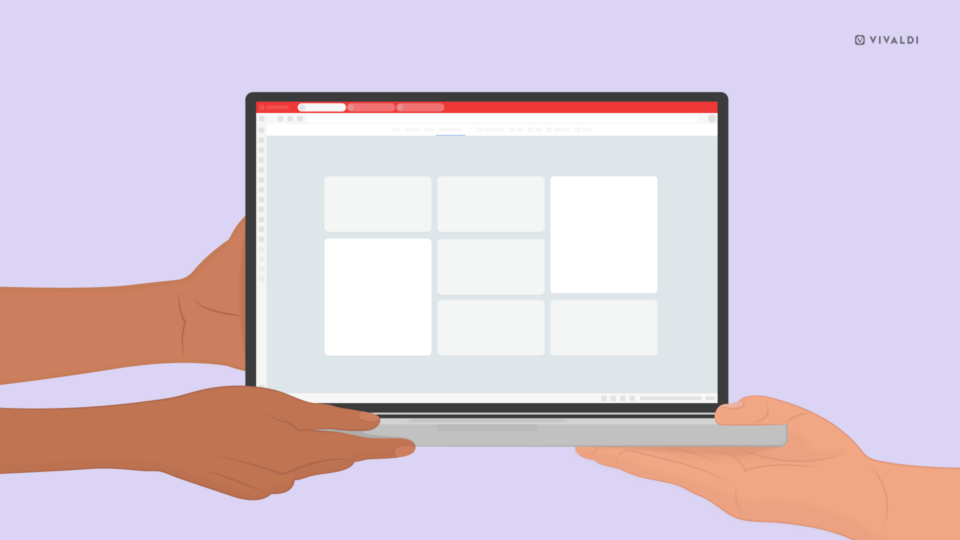You are what you click – that’s how today’s online marketers see you. But the invasive tracking by every site you visit, every service you log into, every cookie you accept, started quite innocently.
In the early days of the internet, developers were focused on building software with functionality only. Soon, some of them realized that they could improve their services by tracking their users: how do they use their software, what features do they use the most, etc.
The developers that excelled at this form of user tracking were able to improve their service according to users’ wishes, and, thus, were able to develop ahead of the competition. As a consequence, their services grew in market reach.
To grow even further, they started tracking more than just what and how the users used their software. Targeted online marketing was born.
Online tracking unleashed
After a couple of years, tracking methods online exploded. Today we have single-website trackers, cross-website trackers, device fingerprinting, all sorts of cookies and more tracking tools.
The problem is that every site you visit wants to know as much information about you as possible:
- where you came from,
- what you looked at and for how long,
- what you clicked,
- what you did right before you left the website, and so on.
The reason for this is simple: every marketer hopes that this data will help them improve their online presence. They want you to stay longer on their page, come back more often, and – most importantly – buy their products or click on advertisements presented to you. After all, every website needs to make money.
Google and the data they collect
To understand a bit more about how online tracking works and why we should stop it, let’s take a look at Google, the biggest tracking company online.
Google makes the largest ad revenue worldwide. Its services – search, browser, email, maps, etc. – are used by billions of people every day, and each person is being tracked.
Do you use Google maps? Then Google knows every place you’ve been to, how long it took you to get there and how long you stayed. You can see your own data here.
Google knows everything you’ve searched for. Google stores your search history unless you delete it. But you must make sure to delete it in your Google Settings, not just your phone history, for example. Click here to see your own data.
PlayStore, YouTube, Gmail, Google Translate, tracking possibilities for Google are endless. Google knows what apps you use, when you use them, who you communicate with. With all that information combined, Google knows whether you are conservative or liberal, whether you are Christian, Jewish or Muslim, whether you are open-minded or not. This makes it easy for Google to create an advertisement profile about you.
Google Analytics & advertisements
The top five most common website tracking tools are all owned by Google. Websites use these tools – provided for free by Google – to track their users. This gives Google even more data about everyone using the internet.
For example, Google Analytics, which is also used for targeted advertisement, was found on almost 70 percent of websites by a study done by the Princeton University. DoubleClick, dedicated ad-serving system from Google, was found on close to 50 percent of websites.
When you browse the web, it’s very likely that all of the following is being tracked:
- your search queries,
- the sites you visit,
- the frequency with which you are returning to a site,
- what you click on,
- how long you linger on a site,
- the speed with which you scroll,
- where you stop,
- the movements of your mouse around a web page,
- the comments and reactions you might add on a site or on social media.
What is this data used for?
Advertisers use all the accumulated data to market their products to the most relevant audience. With the help of online tracking, they can narrow down potential ad viewers to people that are more likely to click the ad and buy the product. This saves them money and makes it easier for them to influence potential buyers.
Nevertheless, the data can be used for so much more. As the Russian interference with the 2016 US election and the Cambridge Analytica scandal have shown, the data can also be used for political influence. It can even be used to weaken and destabilize our democracies.
This is one of the craziest things about the modern age. Advertisements by political parties are strictly regulated, but foreign countries or private companies can run wild on the internet and on social media. There’s no limit to how they can abuse our data and misuse it to influence us.
The challenge to undo what has been done
The challenge today is to stop this unlimited data mining, to stop online tracking. The problem is that the most commonly used tools are provided for free by a handful of tech companies. These companies have based their business model on excessive data mining and, thus, have no interest to stop.
On the other hand, users have gotten used to some handy features that are very questionable when it comes to privacy. Gmail, for example, is completing sentences as you type or sends reminders for upcoming flights.
It’s almost unbelievable: we would never let governments or companies put cameras into our homes or location trackers on us. Instead, we just did it ourselves merely because of convenience – and oftentimes because we didn’t understand how elaborated the level of data mining has become and to what extent our data is already being abused.
The ultimate challenge for developers is to build software that is just as convenient but without any privacy-infringing tracking. The ultimate challenge for users is to change their habits by switching from Google to services that respect them and their data.
As legislators are far too slow to regulate the internet in a way that companies can no longer track us, we – developers and users – have to take things into our own hands to stop online tracking.
Why it is worth the effort
There’s nothing to lose, but a lot to gain. We all know that free is not free and that data mining can do a lot of harm. In other words, privacy matters. Data mining and targeted advertisements are not only being used by companies anymore but have become a tool to swing elections and to destroy our democracies.
The true extent of what is happening online right now can only be grasped if we put the same events into the real world.
Imagine that you’re walking down a road in your hometown. Ahead of you, on the side of the road, you see an empty billboard. As you keep walking, companies, political parties, possibly even foreign agencies are bidding in an invisible auction to show you their advertisement.
They know that you are going to pass by the billboard because they know where you are, where you’re heading, what you are going to do there. They even know your name, where you came from, your dreams, your fears and your plans for the future.
The billboard is more than just an empty advertisement space. It is a targeted attempt at swaying your behavior. Someone is trying to change your behavior by using everything there is to know about you against you.
How to stop online tracking
We have to stop the tracking machine, not just for us, but for the good of society. The only way we can achieve this right now is by limiting the power of data-hungry tech companies that do online tracking.
We at Tutanota have made a start by developing a service that combines secure email, encrypted contacts, and an encrypted calendar. We respect your right to privacy. Lots of other companies are doing the same: browsers, chat-app, cloud storage. Privacy-friendly alternatives are already there. Now we have to start using them.
It is about time that we take back what is ours: our data.


